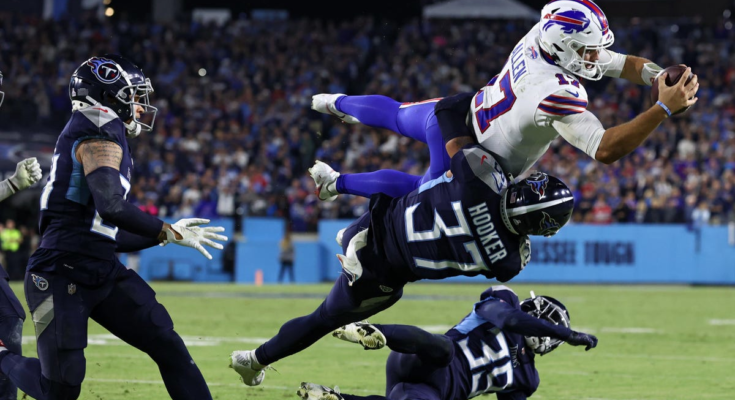
The old saying, “playing not to lose, instead of playing to win,” was used in some of the most hypocritical ways in the past. It was used in football to shame teams that jump in the prevent defense too early, or run the ball three consecutive plays when leading at the end of a game to try and run out the clock when the opposing team has enough time outs to get the ball back.
Those are good examples, but for most of football’s existence, the “playing to win” part of that saying has not been consistently applied at the end of games. Whether it’s a punt on fourth and short when holding a late lead, or opting to bring out the placekicker to tie the game instead of going for the end zone to win it, these are clearly “playing not to lose” decisions. With less than 20 opportunities each season to win a football game, no team — especially not one whose head coach is facing a tenuous employment situation — wants to be accused of “blowing a game,” making a “boneheaded decision,” or perhaps “finding a way to lose.”
On Monday night, the Buffalo Bills could have kicked a chip-shot field goal with 22 seconds remaining to send their game against the Tennessee Titans into overtime, but coach Sean McDermott decided to play to win. He sent his offense out on that fourth-down play to try and convert to keep their touchdown hopes alive. Bills quarterback Josh Allen lost his footing, was stopped short, and the Bills lost, dropping their record to 4-2.
The play might have been unsuccessful, but it was still the correct decision to make. For one, the data showed that going for the fourth-down conversion improved the Bills’ win probability by 21.3 percent, per Next Gen Stats. It was also about the Bills playing to their strengths and not to the strengths of the Titans. That’s a decision some other teams have made this season, and the rest need to start doing the same.
If the Bills did tie the game and send it to overtime, it would have forced their defense, No. 1 in the sport per Football Outsiders DVOA data, to retake the field and try to hold onto Titans running back Derrick Henry. That sounds like a simple matchup of best-on-best, but it wouldn’t have been. ESPN displayed a graphic during the game that shows Henry’s yards per carry improving as games progress, and he had been gashing the Bills yesterday with an average of 7.2 yards per carry. If the Bills lost the overtime coin flip, Henry might have gone 70 yards on the first play, game over.
The much wiser decision for the Bills was to try and win the game with their own All-Pro ball carrier, Allen. It was a decision the Baltimore Ravens made in Week 2 against the Kansas City Chiefs and were lauded for because they were successful. It was fourth and 1 from the Ravens’ 43-yard-line with just over a minute remaining in the game. The choice was either to go for it, and if they convert they win. If they failed, they would have given Chiefs quarterback Patrick Mahomes a short field and a minute to work with, or, they could pin the Chiefs deep in their own territory with a punt and give Mahomes a minute to work with. Next Gen Stats’ predictions showed that going for the fourth down improved the Ravens’ win probability by 24 percent, but no team should let Mahomes decide a game with the ball in his hands. That goes double for a team like the Ravens, with Lamar Jackson as their quarterback, maybe the greatest rushing threat at the position that the NFL has ever seen.
The Ravens converted, and they currently sit atop their division with a 5-1 record. The Chiefs are in last place in their division at 3-3.
In Week 5 this modern “playing to win” mentality almost resulted in the Detroit Lions’ first win this season. The Minnesota Vikings fumbled the ball at the two-minute mark of the fourth quarter and the Lions scored a touchdown with 37 seconds remaining in the game. The Lions don’t have Henry, Mahomes, Allen, or Jackson, and they still decided to go for the 2-point conversion to win instead of the extra point to tie. They were successful on that play, but they couldn’t slow down the Vikings’ offense and lost the game on a 54-yard game-winning field goal.
Three calls, three different results, each one the correct decision. For those coaches that say, week after week, “we’re gonna get after our opponent”? Then get after them. For a team to win a game it has to score more points than the other team, so give your players the best opportunity to win it, instead of the simply best opportunity to not lose it.


